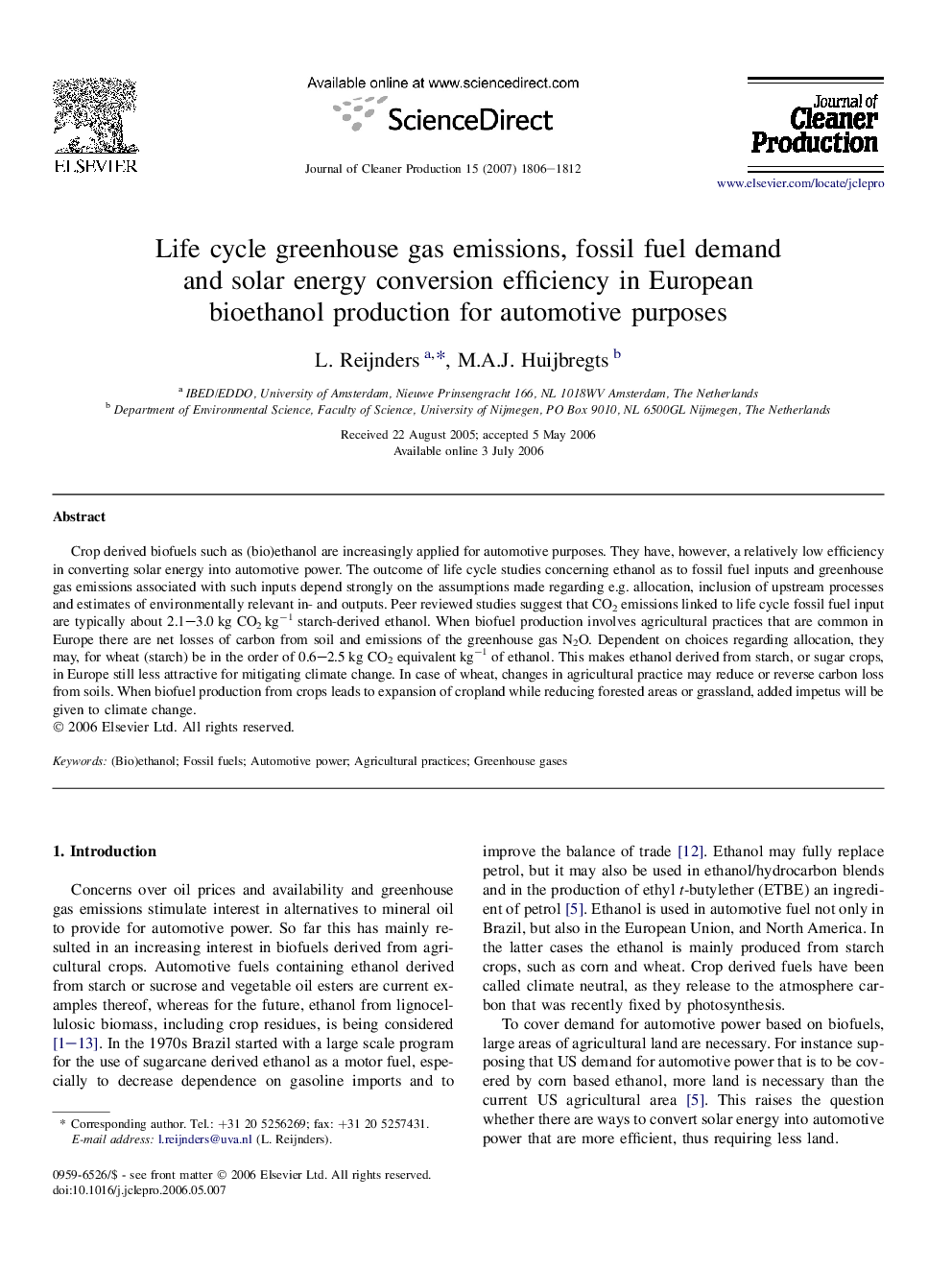| Article ID | Journal | Published Year | Pages | File Type |
|---|---|---|---|---|
| 1747283 | Journal of Cleaner Production | 2007 | 7 Pages |
Crop derived biofuels such as (bio)ethanol are increasingly applied for automotive purposes. They have, however, a relatively low efficiency in converting solar energy into automotive power. The outcome of life cycle studies concerning ethanol as to fossil fuel inputs and greenhouse gas emissions associated with such inputs depend strongly on the assumptions made regarding e.g. allocation, inclusion of upstream processes and estimates of environmentally relevant in- and outputs. Peer reviewed studies suggest that CO2 emissions linked to life cycle fossil fuel input are typically about 2.1–3.0 kg CO2 kg−1 starch-derived ethanol. When biofuel production involves agricultural practices that are common in Europe there are net losses of carbon from soil and emissions of the greenhouse gas N2O. Dependent on choices regarding allocation, they may, for wheat (starch) be in the order of 0.6–2.5 kg CO2 equivalent kg−1 of ethanol. This makes ethanol derived from starch, or sugar crops, in Europe still less attractive for mitigating climate change. In case of wheat, changes in agricultural practice may reduce or reverse carbon loss from soils. When biofuel production from crops leads to expansion of cropland while reducing forested areas or grassland, added impetus will be given to climate change.
